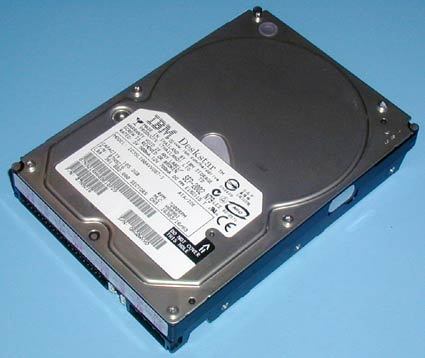The Next Generation: IBM DeskStar 180GXP with up to 180 GB
Get Tom's Hardware's best news and in-depth reviews, straight to your inbox.
You are now subscribed
Your newsletter sign-up was successful
Introduction
IBM hard drives have always had a reputation for speed and reliability - at least they did until the DeskStar 75GXP series made headlines due to a slew of failures. Thankfully, this episode is a thing of the past and current models once again fulfill the expectations associated with the name IBM. To polish up its tainted image, IBM has now released the DeskStar 180GXP.
The basic design is analogous to that of other hard drives. It consists of several rotating magnetic discs, called platters. To write or delete individual bits, read/ write heads are guided over the platters, similar to the needle of a record player, although in the case of hard drives, there is no physical contact.
To enhance overall performance, companies can use intelligent controller chips, better actuators for faster movement of the read/ write heads, increase the rotation speed of the platters, or employ a larger cache. Of course, increasing the speed at which a drive rotates also means lower operational tolerances, higher operating temperatures and a generally louder drive. That's why the current generation of high-end IDE drives operates at 7200 rpm.
For its new family line, IBM chose to focus on the cache. While the 60 GB, 80 GB, and 120 GB drives come equipped with the standard 2 MB, the high-capacity models with 120 GB and 180 GB carry a full 8 MB of cache. It seems IBM has taken a page out of competitor Western Digital's book.
IBM has also made a change at the mechanical level. All of the 180GXP-series drives will use fluid dynamic bearings, which could possibly also reduce the drives' noise levels.
Get Tom's Hardware's best news and in-depth reviews, straight to your inbox.

Patrick Schmid was the editor-in-chief for Tom's Hardware from 2005 to 2006. He wrote numerous articles on a wide range of hardware topics, including storage, CPUs, and system builds.
